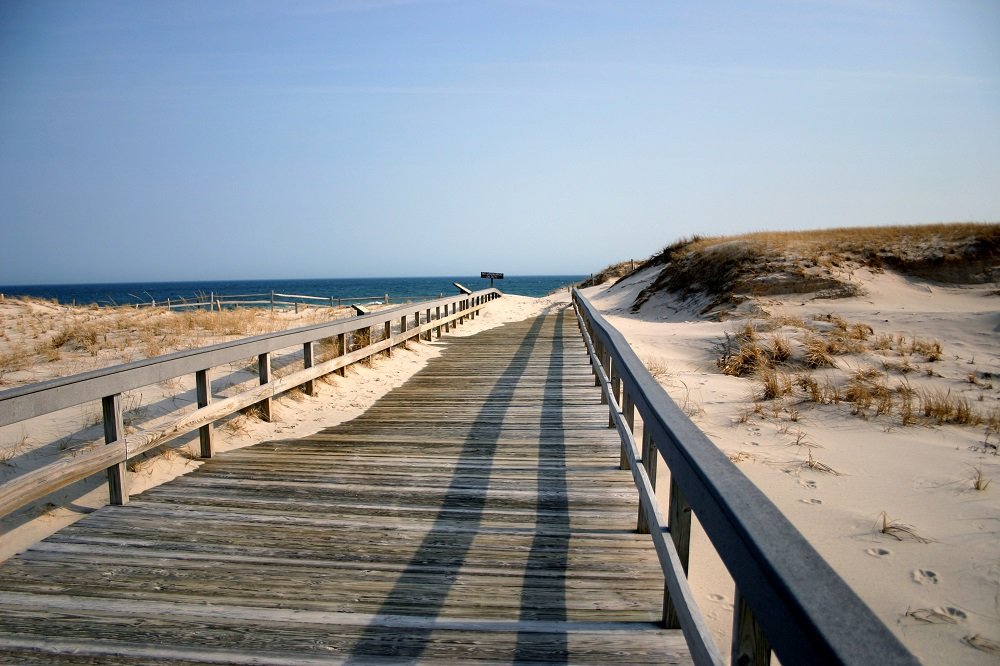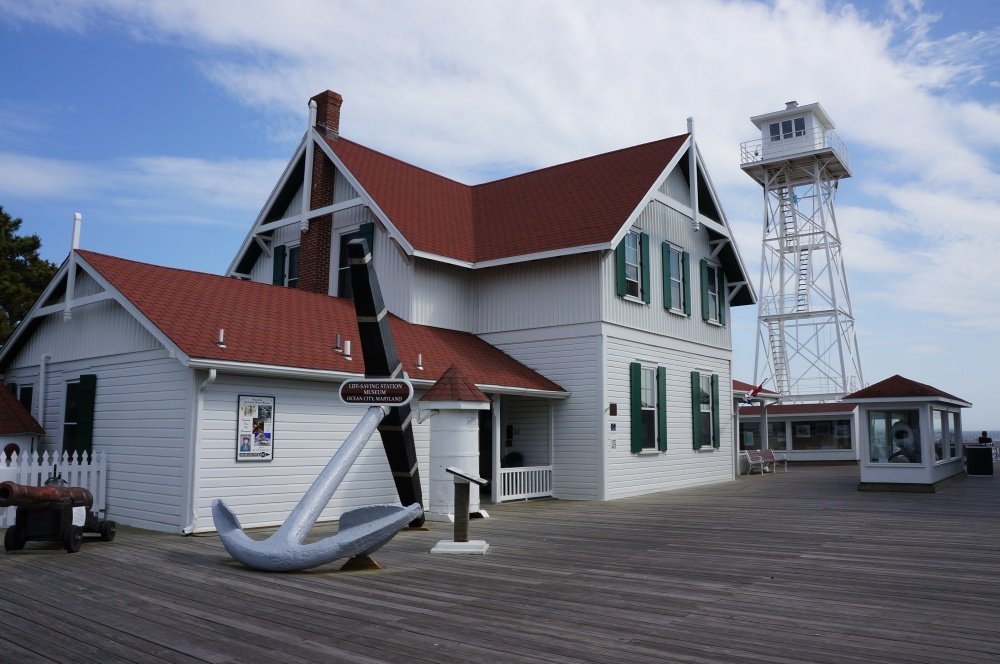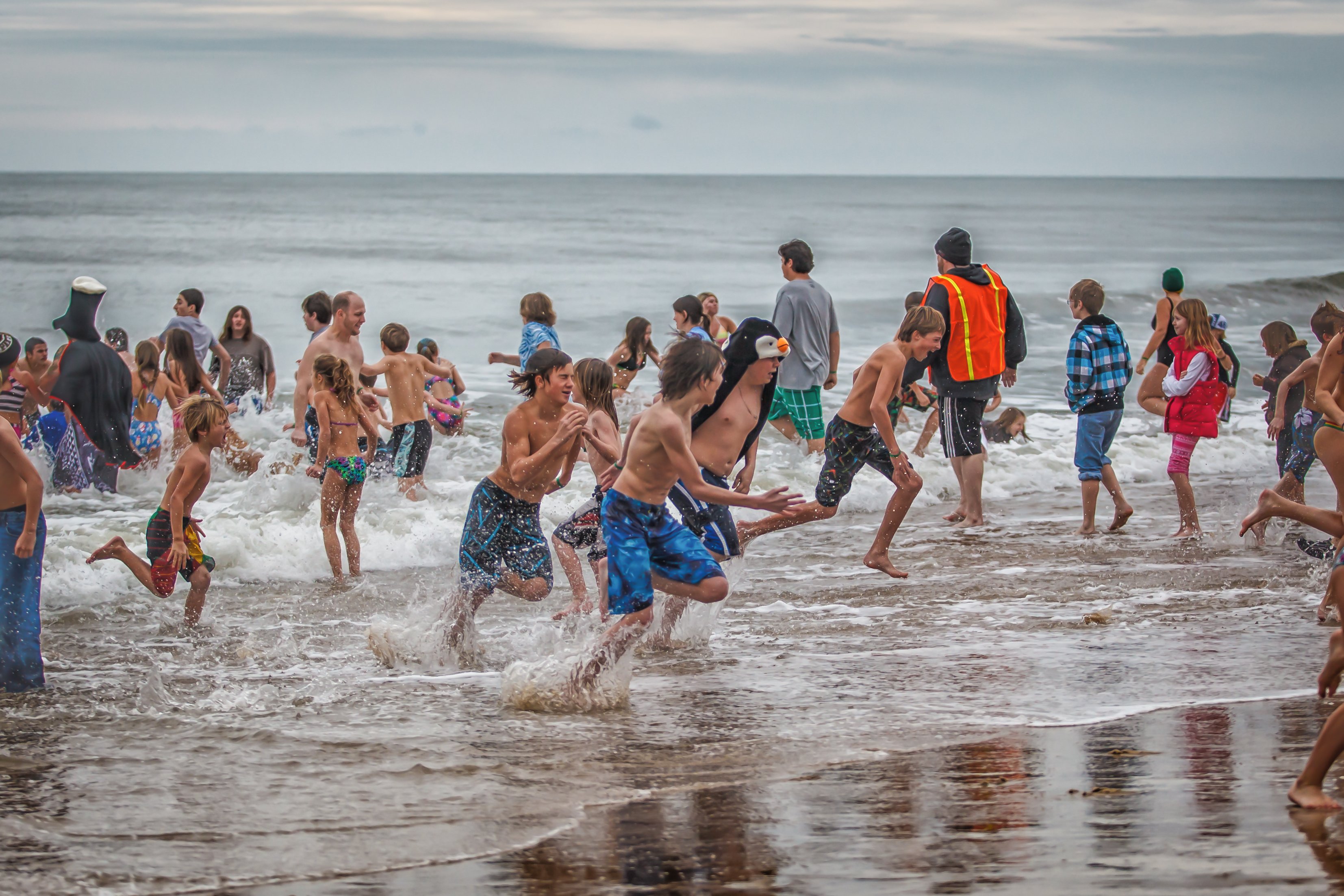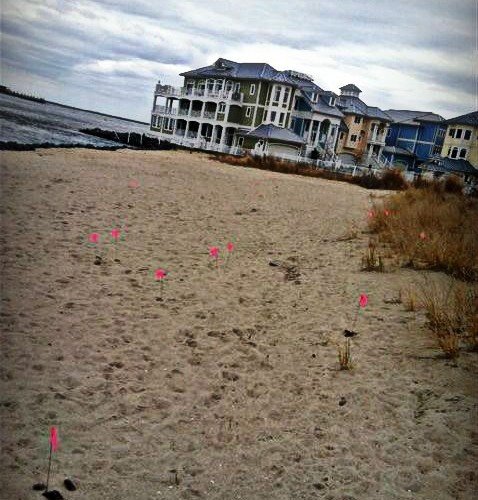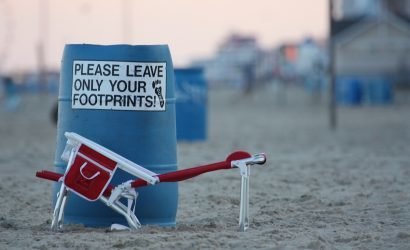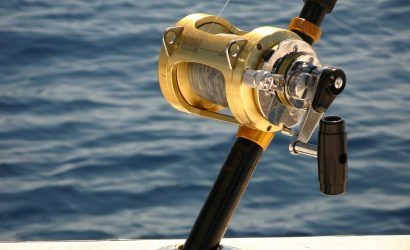Last Wednesday, a county worker stopped by the Maryland Coastal Bays Program office in West Ocean City to notify the staff that someone had picked up all of the orange flags from Stinky Beach. The flags were nicely bundled and left next to a trash can with a solo bag of dog poop.
“Over the past month, we have had volunteers go to Homer Gudelsky park to put out flags with the message, ‘a gift from a discourteous dog owner’ printed on them, next to every pile of dog poo not picked up,” said Sandi Smith, Marketing Specialist for the Maryland Coastal Bays Program.
Homer Gudelsky Park, known to many locals as Stinky Beach due to the marshy stench that wafts through the sea air, in West Ocean City is still littered with piles of pet waste. When the county worker stopped by the Coastal Bays office, more than 40 flags were removed but the poop piles they marked still remained. Why? A disgruntled pet owner was probably upset after someone marked all of their doggie piles on the beach so they removed all of the flags as an effort to say ‘I don’t care’.
“I don’t think many dog owners understand that poo doesn’t just disappear. It gets washed away into our waterways!” Smith said in response to the situation.
Scientists from the U.S. Geological Survey estimate that pet waste contributes between 20 – 30% of all the water pollution in America. Waste produced by one dog may not seem like that big of a deal, but multiply that amount of waste by the number of dogs that live locally. That expansive number can cause a pile of problems for our bays.
Dog waste carries tons of disease causing bacteria. By picking up the waste and disposing of it properly, harmful fecal coliform bacteria and excess nutrients will not wash into our coastal waterways. One single gram of dog waste can contain 23-million fecal coliform bacteria; twice as much as human waste.
“The orange flags are meant to represent just how much discourteous behavior is going on at the park and how it affects our bays,” said Smith in regards to the purpose of the orange flags.
The Coastal Bays Program posted a sign at the park entrance in hopes of educating dog walkers about the dangers that occur when fecal bacteria enters local waterways. For several years there has been a large sign at Stinky Beach encouraging pet owners to curb their pets or face a fine if caught. Worcester County Code requires owners to pick up after their pets (PS2-101 Paragraph U). Failure to do so could result in a $100 fine. Pet waste bags are available (located in a dispenser clearly labeled next to the entrance sign) for pet owners to use while visiting the park. A large, lined trashcan is also available for easy disposal.
“It’s so amazing that we have such a beautiful area to walk our dogs… and how discourteous some owners are towards other park users. Do they think other people should be picking up after them and their dogs?” Smith questioned.
Flushing pet waste down a toilet is the best way to take care of pet waste because the waste will be treated at a sewage treatment plant. If you are unable to flush your dog’s waste – sometimes this action isn’t always feasible – scooping the poop with a plastic bag usually works best. Be sure to dispose of bags in a trash can. Reuse your old grocery bags or plastic newspaper sleeves as pick up bags. Bag dispensers that clip to a pet leash are widely available at local pet shops. Paws & Claws, Pet Co., Pet Smart, and Selbyville Pet Supply each have a wide variety of pet waste related products available for purchase.
Pet feces often carries E. Coli bacteria, viruses, and parasites. If waste is left to compost, which some people would consider okay to do, rainwater washes these bacteria into the coastal bays. It takes roughly 50 days for fecal matter to decompose when exposed to the elements. Think about how many times it rains in 50 days. Each time it rains, more bacteria is washed out of the fecal matter and into our soil, then water, and then larger waterways.
Maryland Coastal Bays Program representatives went to Stinky Beach on Friday and discovered one big pile of poop and only one orange flag remaining. Unsuspecting swimmers who are exposed to bacteria in contaminated waters can contract unpleasant infections. Some infections that result from swimming in bacteria-rich waters include giardia, diarrhea, hives, and rashes. Because pet waste is so nutrient-loaded it can stimulate algai blooms, dead zones, and ultimately kill certain marine life.
“Someone went through and pulled up out 40+ flags,” said Smith who plans to go back to the beach on Monday to plant more flags. With nice weather and plenty of people walking their dogs on the beach because it has been warm, the Coastal Bays crew will likely have to plant many more flags next to piles of poop. Will someone, once again, remove the flags but leave the piles of waste? The program has contemplated putting flags in different parks around the Eastern Shore, too.
Last fall, the Maryland Coastal Bays Program held a contest to search for their spokesdog. About 50 dogs were entered in the contest, and three winners were chosen. The winning spokesdogs, one yellow Labrador and two Corgis, will be at different events promoting the effort of scooping poop throughout the year.
During the Berlin Christmas Parade the Maryland Coastal Bays Program put together a float that boasted four live dogs, a plethora of sea creatures, and some memorable characters. A larger-than life sized ‘pile of poop’ ran throughout the parade as two human ‘pooper scoopers’ tried to wrangle the creation that carried a sign reading ‘Scoop Your Poop’. The float theme was ‘Don’t be a Poopatraitor!’. For their efforts, the program won the title of 2nd Place in the Adult Sponsored Float division.
Join the Maryland Coastal Bays Program and help them battle poopatraitors. Remember to, and encourage others to, scoop their poop so it doesn’t pollute our water. It’s easy, it’s neighborly, and it’s the healthy thing to do for humans, dogs, and our coastal watershed.

